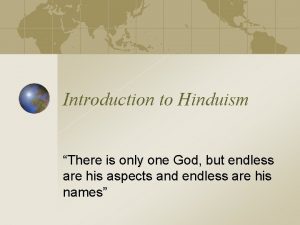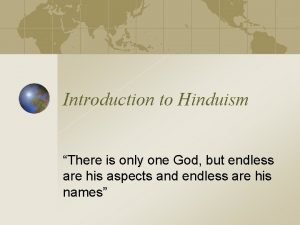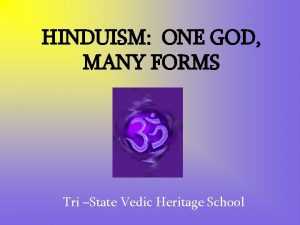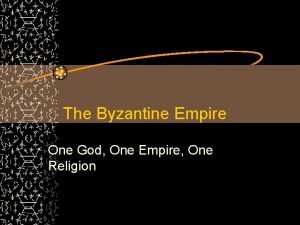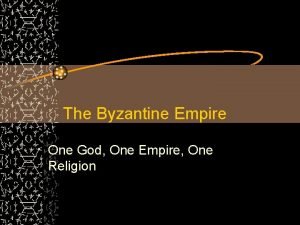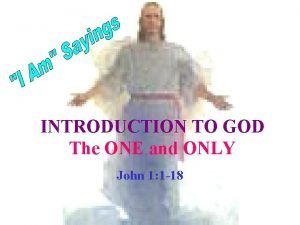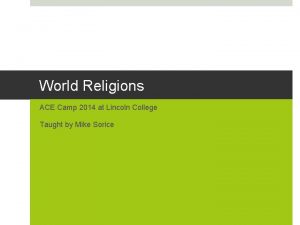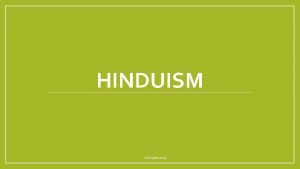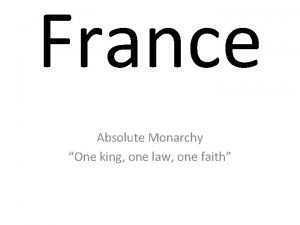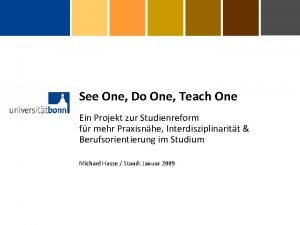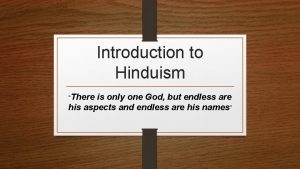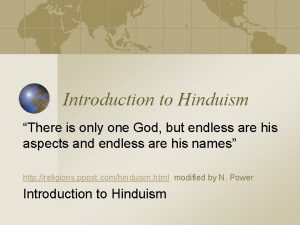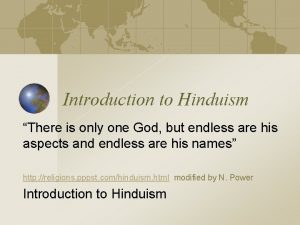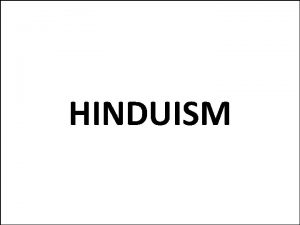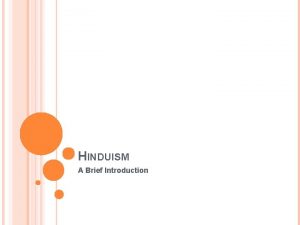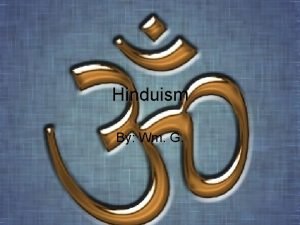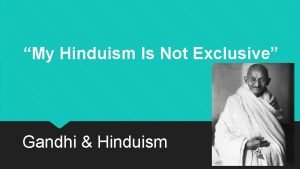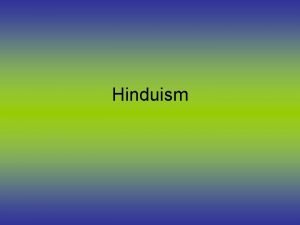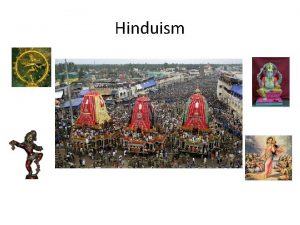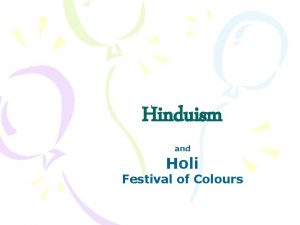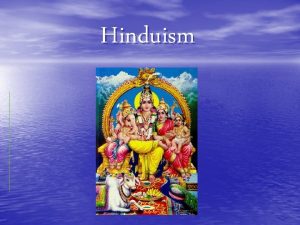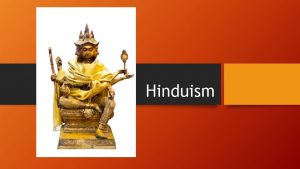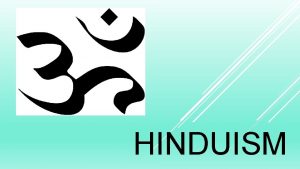Introduction to Hinduism There is only one God


















- Slides: 18

Introduction to Hinduism “There is only one God, but endless are his aspects and endless are his names”

The vast majority of Hindus live in India and Nepal

Goal of Hinduism Moksha: “release or liberation United forever with the divine Infinite bliss and awareness

Reincarnation v. Samsara v. People may be reincarnated at a higher or lower level of existence depending on their karma from their present life. v. People may be reborn as plants or animals or they may be elevated to a higher caste as a human. v. Death is not final for Hindus as they expect to be reborn many times.

Karma & Dharma v. Karma: “action” or “deeds” v Dharma: Ethical duty

Four Stages of Life Stage One: Student stage Stage Two: Householder Stage Three: Forest-dweller --after the birth of first grandchild Stage Four: Sannyasin - wondering ascetic

Sacred Texts Rig Veda: Hinduism’s oldest text- nearly 4000 years. Bhagavad Gita: Hinduism’s most popular sacred text.

Kali v wife of Shiva vblack in color & wearing a necklace of skulls. v. She is a bloodthirsty goddess. v. A violent destroyer of her enemies vaffectionate and caring for her devotees. .

What do people want? v Pleasure v Success: wealth, fame, power v Duty v Liberation (moksha) Path of Desire

Life’s Limitations v pain (physical and psychological) v ignorance v restricted being

Common Preliminary Commitments Cultivate habits of: v non-injury v truthfulness v non-stealing v self-control v cleanliness v contentment v self-discipline v compelling desire Ahimsa (non-injury) is the ultimate dharma (duty)

Festivals and Holy Days vno set day of the week is holy-each days has its possibilities v. Religious festivals may be solar or lunar-lunar is preferred v. In order to keep festivals consistent, an additional lunar month is added to the calendar about every three years. v. Some numbered days of the month are more important than others. There are 125 special days in the Hindu year.

Festival: Divali: “Row of lights v. Takes place in Oct. or Nov. v. It is a series of five festivals v. Lights are floated on small rafts v. If the candle remains lit, good luck will follow.

Falling from Its source of Vishnu’s feet onto Shiva’s head and out from his hair, the water of the Ganges is sacred enough to purify all sins. The Ganges River

Banaras - Hindu’s Holy City v. Pilgrims come from all over to bathe in the Ganges. v. Countless Hindus come to Banaras to die. v. It has 1500 temples, most of them devoted to Shiva. v. It is a gathering place for the religiously learned and their disciples.

Sacred Cow of India

Caste System Four major castes v. Brahmin : priests v. Kshatriya: warriors and administrators v. Vaistrya: farmers, merchants, teachers, artisans v. Sudras: servants, laborers

v. Gandhi: the Father of India For Gandhi, social concern was deeply rooted in his conviction of the Sacredness of life. Gandhi believed that human beings should strive to live as simply as possible since overindulgence often meant that others may have to do without their basic needs. Gandhi was assassinated by a Hindu fanatic on January 30, l 948 as India was gaining its independence.
 One god hinduism
One god hinduism Is there only one god in hinduism
Is there only one god in hinduism Only one god jesus
Only one god jesus Eight dollars is the price of a movie these days
Eight dollars is the price of a movie these days Hinduism one god many forms
Hinduism one god many forms One god one empire one religion
One god one empire one religion One empire one god one emperor
One empire one god one emperor God the one and only
God the one and only If i could only teach you one thing why god made you
If i could only teach you one thing why god made you There is only one boss the customer
There is only one boss the customer Where did hinduism originate
Where did hinduism originate Main god in hinduism
Main god in hinduism Main god in hinduism
Main god in hinduism Take only photos leave only footprints
Take only photos leave only footprints One one one little dog run
One one one little dog run One king one law one faith
One king one law one faith One team one plan one goal
One team one plan one goal See one do one teach one
See one do one teach one See one, do one, teach one
See one, do one, teach one
